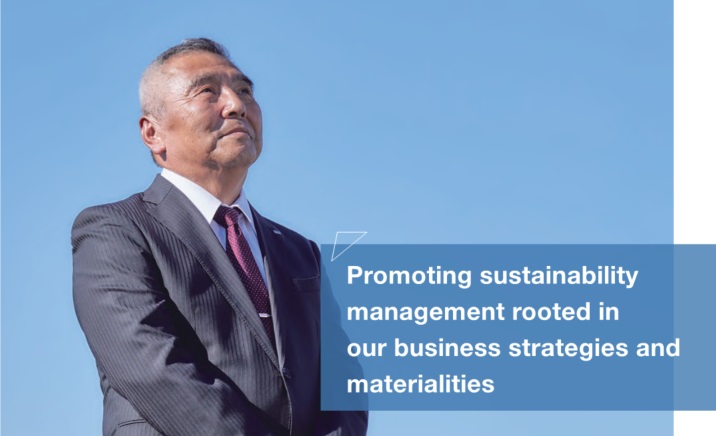
Business Status
In fiscal 2022, the outlook for the TOKYO KEIKI Group’s business
environment remained uncertain. Despite the full-scale resumption of
economic activity around the world, issues such as elevated resource
prices, the short supply of semiconductors and other components, and the
soaring price of raw materials were further compounded by dramatic
movement in exchange rates and a rapid rise in energy prices. The Group
was affected by these factors, and although we managed to achieve an
increase in revenue, profit declined, and we recorded an impairment loss
in the Fluid Power & Control Systems Company, which is part of the
Hydraulics and Pneumatics segment.
While we expect the adverse business environment to continue in fiscal
2023, each internal company and subsidiary in the Group has formulated an
ambitious business plan and is working to implement them. We are also
actively promoting the development of growth drivers. We plan for a
year-on-year increase in revenue and profit, but do not expect to achieve
our targets under the three-year medium-term business plan that began in
fiscal 2021. At the same time, however, we are steadily preparing for
rapid growth under our next medium-term business plan.
Steering the Group toward Future Growth
The Group’s history can be traced back to the development of navigational
instruments in Japan’s in Japan’s Meiji era around the turn of the
twentieth century. We began with marine gyrocompasses and other gyroscopic
applications. As we developed toward our present-day business structure,
we progressively created numerous core technologies such as applications
using inertial sensors, microwaves, and ultrasonics, as well as hydraulic
and pneumatic control technologies. These core technologies were shared
and integrated between the Group’s various businesses, forming the
creative technologies that are the source of our growth. We have earnestly
engaged in fulfilling customer requests and orders. Working face-to- face
with our customers, mainly in Japan, to promote joint development, we have
expanded our business domains by creating numerous “niche-leading”
products. As a result, when one of our businesses faces an adverse
external environment due to economic conditions or other reasons, we are
able to offset its decline through earnings in other business fields,
enabling us to maintain stable performance.
However, as the Ito Review notes, today’s stock market demands that
corporate groups achieve growth targeting an ROE of 8%. The restructuring
of markets on the Tokyo Stock Exchange has further fueled this trend.
Meanwhile, with the competitive strength of the Japanese manufacturing
industry on the wane, during the period sometimes referred to as “the lost
30 years,” there is a limit to what we can achieve by focusing only on the
Japanese market.
It was in this context that we established TOKYO KEIKI Vision 2030 in June
2021, aiming to steer the Group toward future growth, use the SDGs as a
starting point for creating global niche-leading businesses and shift to a
stage of medium- to long-term corporate value enhancement and sustainable
growth. We have also positioned the three-year medium-term business plan
that began in fiscal 2021 as a means to strengthen and reinforce our
foundations as we strive to achieve our targets for the next decade. Under
this plan, we will focus on identifying, incorporating, and developing
growth drivers that open new markets.
One of the five growth drivers (see page 15) established as candidates for
new businesses on which the Group may embark is the aerospace business.
The frequent natural disasters in recent years, such as typhoons, extreme
heat, and torrential rain due to linear rainbands, are thought to be
partly due to global warming resulting from the rise in greenhouse gas
(GHG) emissions. The use of small synthetic aperture radar (SAR)
satellites is expected to assist in understanding such disasters. Small
SAR satellites are used in constellations of several tens of units, and we
have constructed the space wing at our Nasu Plant in Tochigi Prefecture as
a production base to meet the continuing demand for satellite renewal.
Although some time will be required before these satellites are deployed,
we are steadily progressing towards contributing to disaster prevention
and mitigation through the aerospace business, a new growth area.